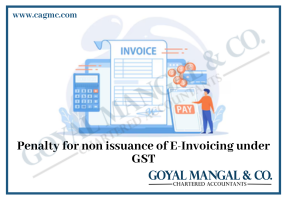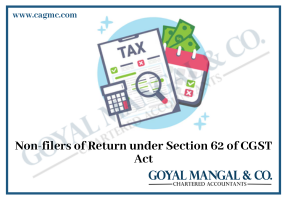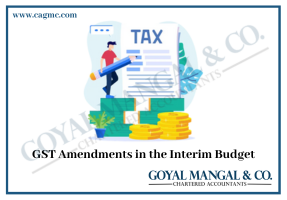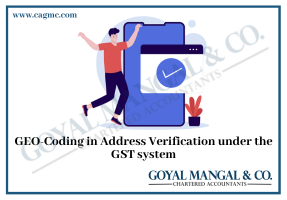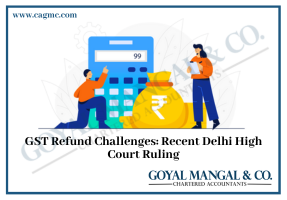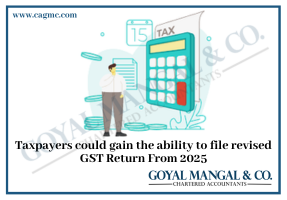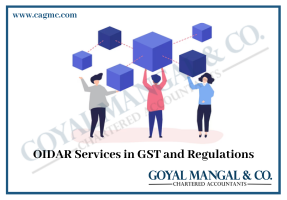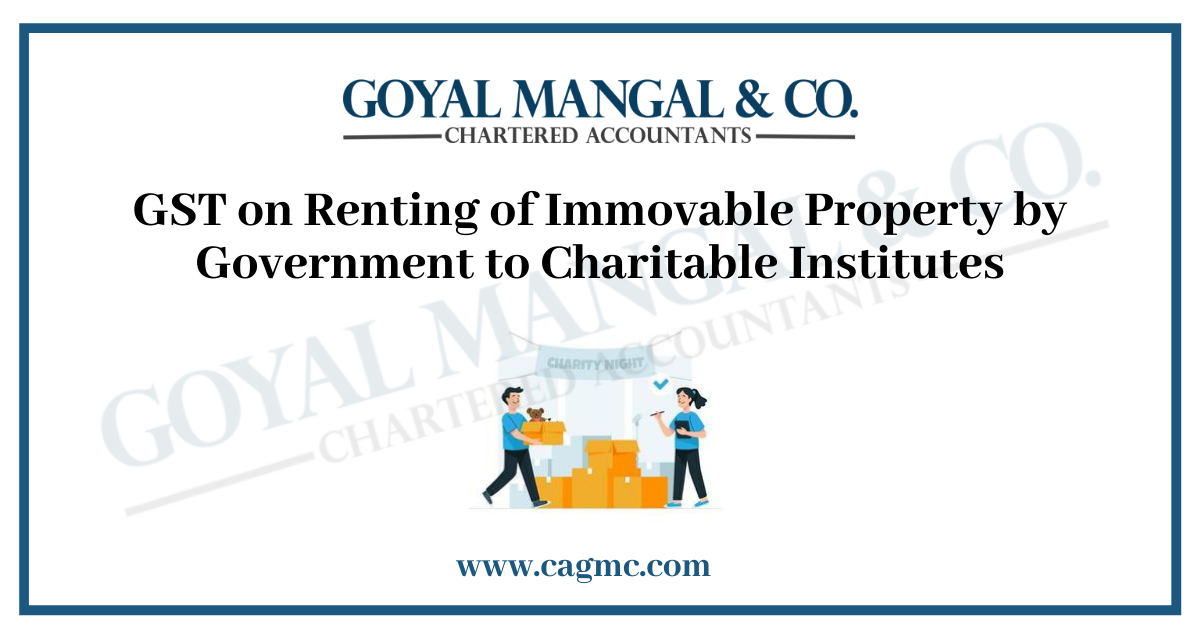
The implementation of GST has been hailed as a major tax reform that will unify the entire country for taxation. While this has benefited a variety of industries, the implementation of the GST will have societal ramifications for charities and non-profit organisations. Let’s have a look at the impact of the GST on Renting of Property by Government to Charitable Institutes and non-profits and charity trusts. Goods and Services Tax (GST) would be imposed on charities under the GST Act. This means that GST will be charged on some of the services provided by a charitable trust or an NGO.
| Table of Content |
Charitable Institutes
“The term ‘charity’ connotes benevolence in both thinking and deed. It entails thinking about others rather than oneself.” Charity is a voluntary donation of money or goods to those in need. Efforts made in groups are always more fruitful. As a result, many Non-Governmental Organizations (NGOs) and non-profit corporations are constantly generating funds for charity purposes all over the world by founding either an institution or a trust.
The efforts of such institutions contribute significantly to the government’s economic development and social welfare goals. Their outreach and more localised approach aid in identifying those in need and providing assistance. As a result, the Indian government has granted charity organisations a variety of tax incentives and exemptions. The most notable of which is Section 80G of the Income Tax Act, 1961.
All such institutions working for the welfare of the public and as per statute are known as Charitable Institutes.
Requirements for exempting a Charitable Trust from GST
A charitable trust or non-profit organisation must meet specific criteria to be exempt from the Goods and Services Tax. The charity trust or non-profit organisation must have registration under Section 12AA of the Income Tax Act, 1961 and the services it provides must be for a charitable purpose.t
Charitable Activity under GST
The Goods and Services Act also establishes the requirements for a charitable activity to be labelled as such and the following activities are considered charity and are GST-free:
- Services linked to public health, such as
- End-of-life care or counselling for terminally ill patients or those with severe physical or mental disabilities;
- People living with HIV or AIDS;
- People who are addicted to a substance that causes addiction, such as opioids or alcohol.
- Preventive health, family planning, and HIV infection prevention are all topics that the general public should be aware of.
- Religion, spirituality, or yoga advancement;
- Promotion of educational programmes or skill development for:
- Abandoned, orphaned, or homeless children;
- Physically or mentally abused and traumatised people; Prisoners; or
- Rural residents over 65 years of age.
- The environment, especially the watershed, woods, and wildlife, must be preserved.
As a result, if a charitable trust or non-profit organisation does not meet either of the two standards, GST will apply, and the entity will need to register for GST.
Applicability of GST on the functions of the Charitable Institution
If a charitable trust runs training programmes, yoga camps, or other programmes that aren’t free to participants, it will act as a commercial activity and hence subject to GST. The donation received for such activity will also be subject to GST taxation. A charitable entity shall be free from GST if it provides instruction or coaching in recreational activities related to arts and culture or sports.
If trusts run schools, colleges, or other educational institutions specifically for vacant, parentless, homeless children, physically or mentally abuse victims, prisoners, or people over the age of 65 who live in rural areas, these activities will act as charitable, and the income from such supplies will be GST-free.
Opinion of Judiciary
Supreme Court of India’s judgement in Commissioner of Sales Tax Vs Sai Publication Fund (2002) 4 SCC 57; the tax under the Act is payable only on the sales or purchases of taxable goods by a dealer, not on the sales; or purchases of taxable products by everyone.
Facts: The assessee Trust’s main purpose is to disseminate the message of Shridi’s Saibaba. It is also indisputable that the Trust distributes books, literature, and other materials bearing Saibaba’s message at no cost to Saibaba’s devotees. There is no doubt that the Trust’s primary and major activity is to promote Saibaba’s message.
This primary activity does not qualify as “business”. The practice of publishing and selling literature, books, and other literature is plainly supplementary; or ancillary to the core activity of spreading the message of Saibaba and is in some ways a means to achieve the purpose of the Trust through which the word of Saibaba.
The Trust Deed and the objects make it apparent that the purpose of creation was not with the goal of continuing the business/occupation of selling or distributing goods. Given this, it is impossible to say that the Trust engages in the business of selling and supplying goods in order to qualify as a “dealer” under Section 2(11) of the Act.
The action carried out by a charity trust in furtherance of the trust’s object, rather than for profit. As a result of the Supreme Court’s judgement and the present definitions of ‘Business’ and ‘Supply’; it is clear that entities whose primary purpose is philanthropic action cannot act in the capacity of ‘business.’
Endnote
There is no trade, commerce, manufacture, profession, vocation, adventure, wage; or any other similar activity because there is no trade, commerce, manufacture, profession, vocation, adventure, wager; or any other similar activity. As a result, the charitable activities of the Charitable Institute do not fall under the concept of ‘business‘. As a result, a Charitable Institute is not a Business Entity. However, the subject is almost certainly going to be under litigation. Hence, providing services in the form of renting immovable property to a Charitable Institute by the government is exempt.
